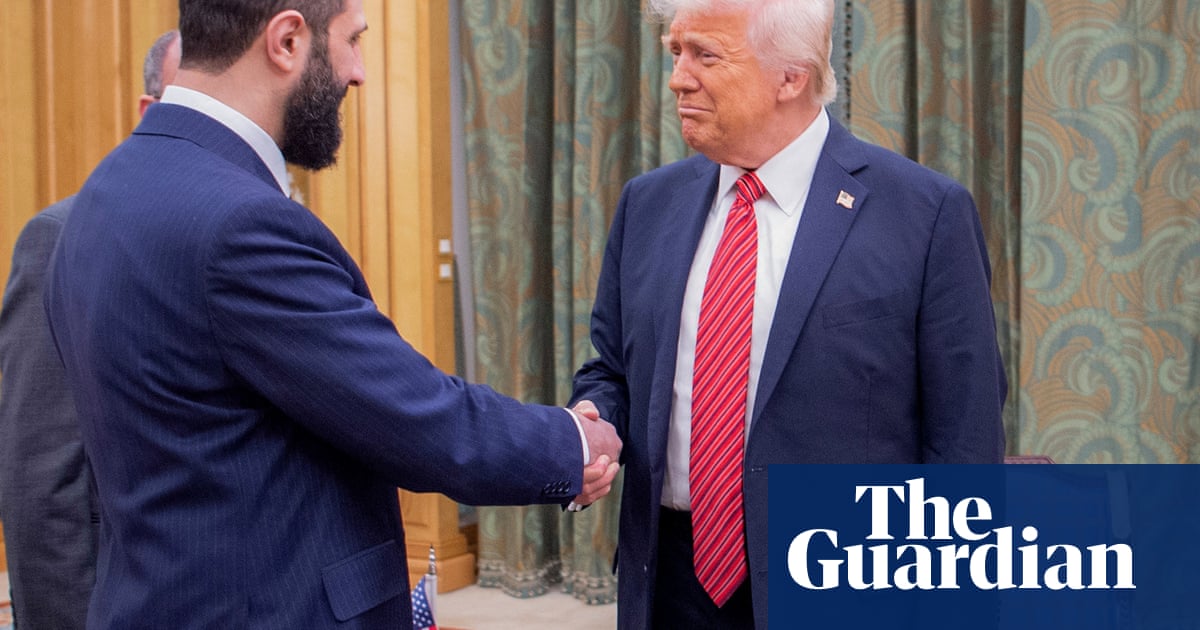The article highlights a significant diplomatic development involving U.S. President Donald Trump and Syria's President Ahmed al-Sharaa. This meeting, occurring after the announcement of the lifting of U.S. sanctions on Syria, reflects a complex interplay of international relations, economic interests, and regional politics.
Diplomatic Implications
The meeting signifies a potential shift in U.S. foreign policy toward Syria, especially after years of sanctions imposed due to the Assad regime's violent repression of protests. Trump’s decision to lift sanctions could be interpreted as an attempt to stabilize the region, promote investment opportunities, and improve relations with Gulf allies. The mention of a Trump tower in Damascus suggests a commercial interest that could further intertwine U.S. economic goals with political recognition of the Syrian government.
Public Perception and Messaging
The narrative crafted in the article appears to promote a message of hope and renewal regarding Syria's future. By framing the lifting of sanctions as a chance for greatness, it seeks to generate a positive perception of the new Syrian leadership and the U.S.'s role in facilitating this transition. This could resonate with audiences who favor diplomatic engagement over isolationist policies.
Potential Omissions
While the article focuses on the lifting of sanctions and the meeting's potential benefits, it may downplay the complexities and consequences of such diplomatic moves. Critics of Trump’s foreign policy may argue that engaging with a government previously sanctioned for human rights abuses raises ethical concerns. The article does not delve into the opposition faced by the Syrian government or the implications for Syrian civil society, potentially obscuring critical voices.
Manipulative Elements
There are elements within the article that could be viewed as manipulative. The framing of the Syrian leadership as a legitimate authority post-Assad, alongside the promotion of economic opportunities, may serve to gloss over the ongoing humanitarian crisis in Syria. This narrative could be seen as an attempt to reshape public perception in favor of a more favorable view of the Syrian government.
Comparative Context
When comparing this article to others discussing U.S. foreign policy or Middle Eastern geopolitics, it stands out for its optimistic tone. Many articles in similar domains often highlight tensions or conflicts, while this piece leans towards reconciliation and investment. This could indicate a strategic narrative shift intended to align with business interests or political agendas.
Broader Impacts on Society and Economy
The lifting of sanctions could have far-reaching implications for both Syria and the U.S. economy. It might open doors for American businesses seeking to invest in the region, potentially revitalizing the Syrian economy. However, this could also provoke backlash from those who view engagement with the Syrian government as a betrayal of democratic values.
Supportive Demographics
This news is likely to appeal to business communities and those advocating for a pragmatic approach to foreign policy, particularly in the realms of investment and economic cooperation. Conversely, it may alienate human rights advocates and others who prioritize ethical considerations over economic gains.
Market Reactions
The news could impact stock markets, particularly those of companies involved in construction, energy, and investment, as opportunities in Syria may become more viable. Investors might start to speculate on the economic potential of a post-sanction Syria, influencing stock prices and market trends.
Geopolitical Significance
The event carries weight in the context of global power dynamics, especially concerning U.S.-Middle East relations. The announcement aligns with broader discussions on U.S. withdrawal from conflict zones and could influence other nations' strategies regarding Syria.
The article appears well-constructed but may present a one-dimensional view favoring economic engagement while neglecting the broader ramifications of such a pivot in U.S. policy. The potential manipulation lies in the framing, which may prioritize economic interests over a comprehensive understanding of the situation in Syria.
